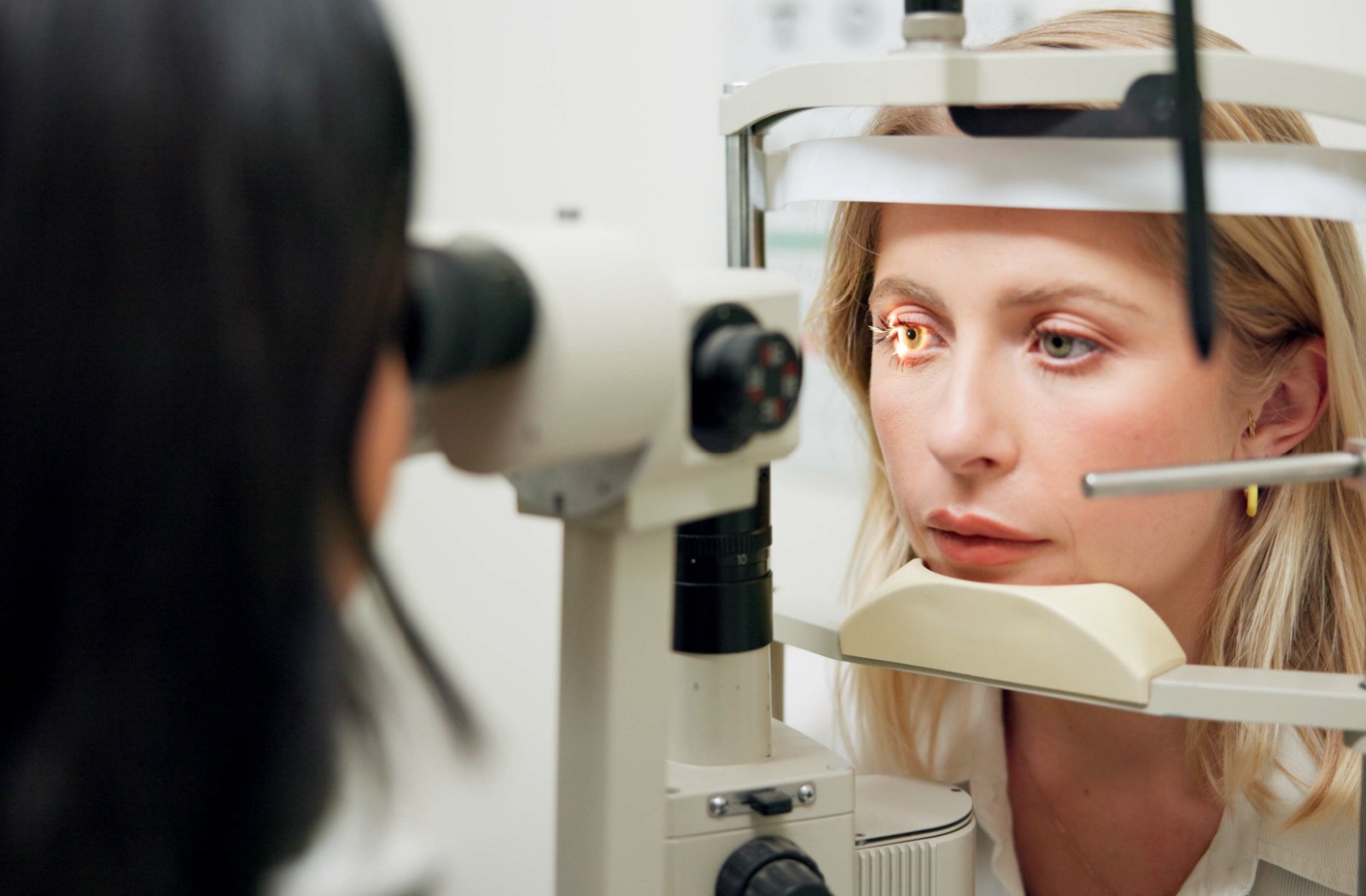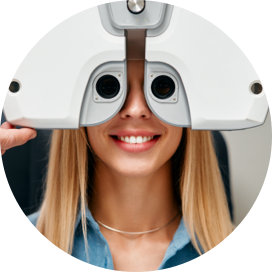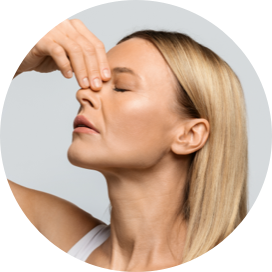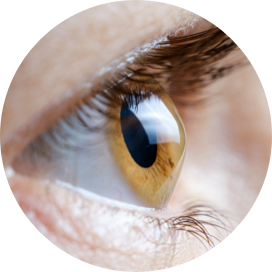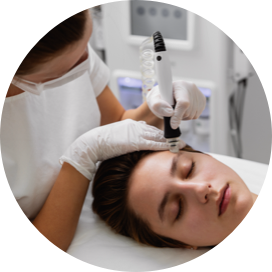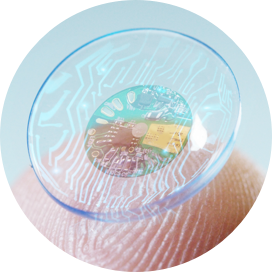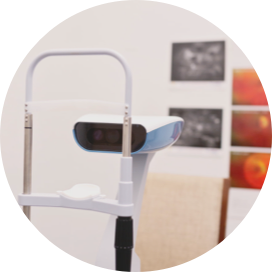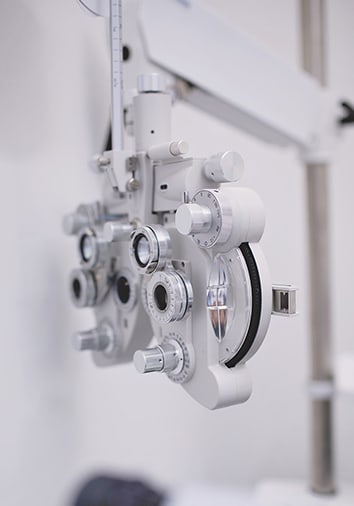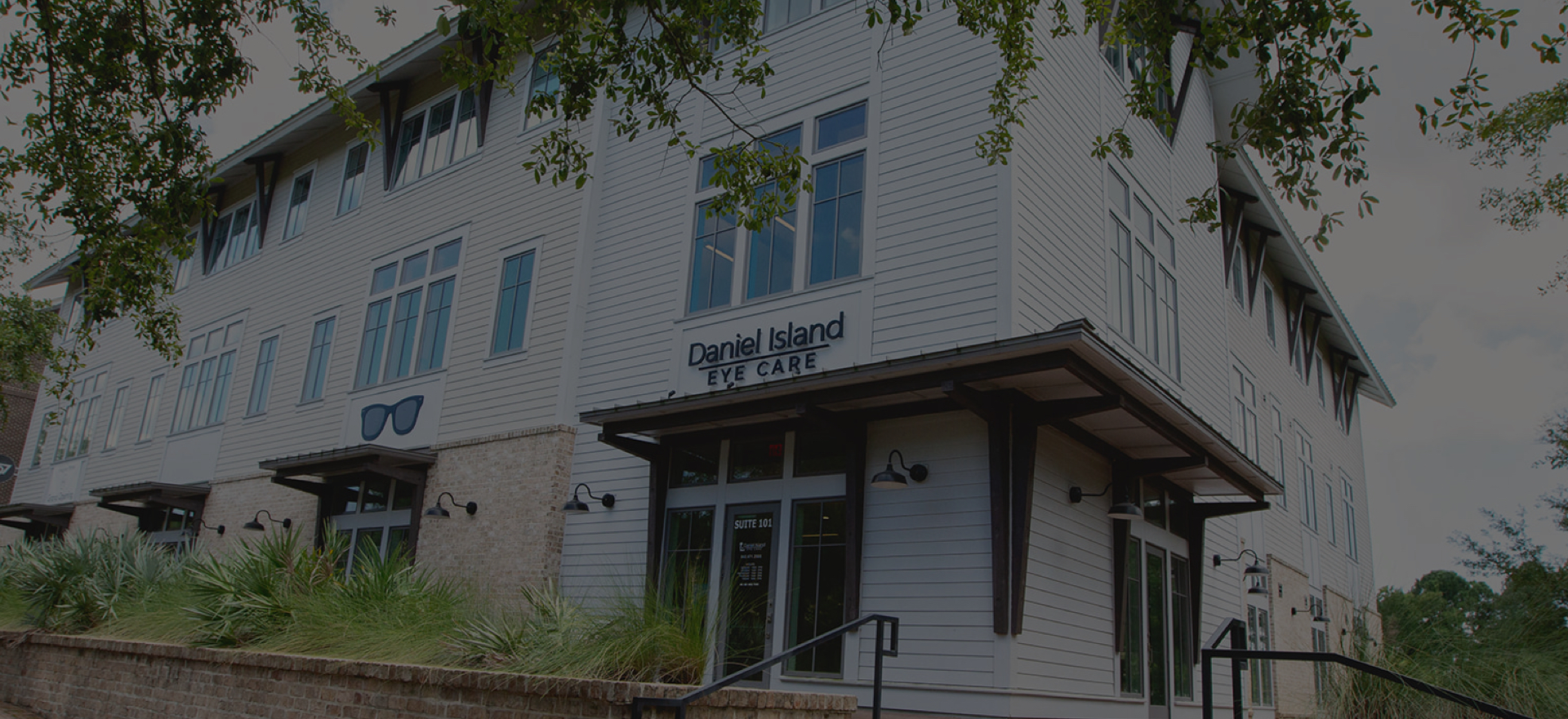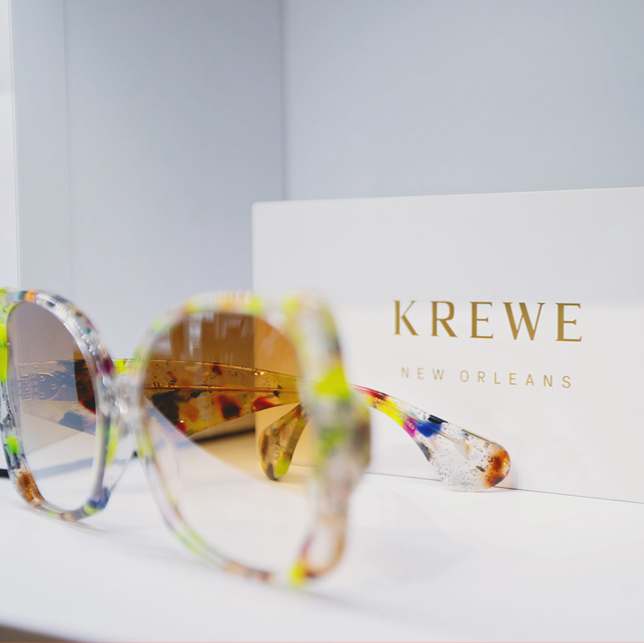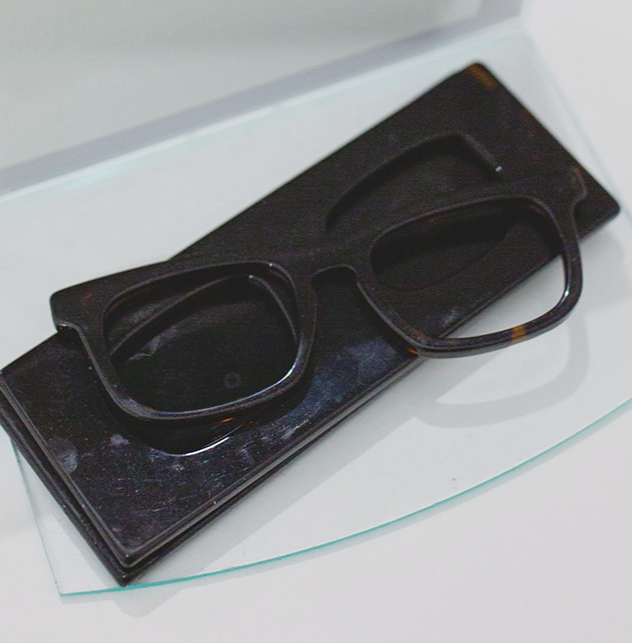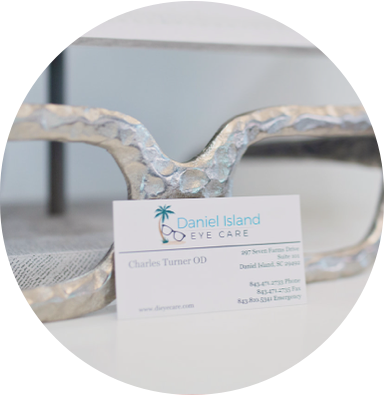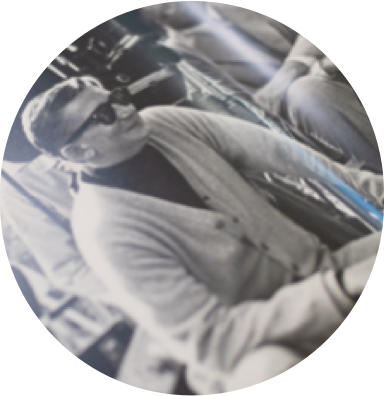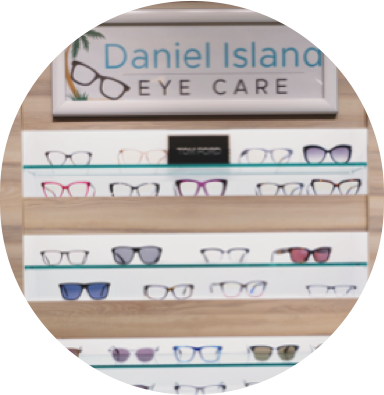Maintaining clear and comfortable vision is essential for navigating daily life, and for many, contact lenses provide the perfect balance of convenience and comfort. They’re discreet, hassle-free, and offer the perfect alternative to glasses.
Annual contact lens exams help keep your prescription updated and make any necessary adjustments to your lenses to maintain optimal vision. During your exam, your optometrist can assess and monitor your eye health, detecting and addressing issues early.
Do I Need a Comprehensive Eye Exam?
Like any other part of your body, your eyes change over time. These changes might be so gradual that they go unnoticed until more significant symptoms start to show. An annual eye exam allows your optometrist to track these changes.
Eye Exams Detect Hidden Problems Early
Many eye conditions develop silently, showing no obvious symptoms in their early stages. During a comprehensive eye exam, your optometrist will perform a series of tests to assess the health of your cornea, retina, and overall eye condition.
Since contact lenses sit on the surface of your eye, corneal health is particularly important for contact lens users. Poor-fitting lenses or prolonged wear can lead to complications like corneal abrasions or infections.
Your annual exam helps your optometrist spot these issues early, preventing more significant issues and preserving your ocular health.
Contact Lenses Should Be Tailored to You
No two pairs of eyes are the same, and contact lenses aren’t one-size-fits-all. Your optometrist uses annual exams to personalize your lens prescription, considering factors like the curvature of your cornea and the amount of oxygen and moisture your eyes need.
Your initial contact lens exam and fitting can help train your eyes and let you become accustomed to contact lens use. Annual exams can help monitor how well your contacts fit and how your eyes respond to long-term use.
Additionally, your optometrist can help you find specialized contact lenses to address various eye concerns, such as dry eye and keratoconus. Some contact lenses are designed to slow down myopia progression in children, correcting their vision while helping prevent future eye problems.

Routine Check-ups Help Address Lifestyle Changes
Major life changes like starting a new job, spending more hours on screens, or trying a new fitness routine can impact how your eyes respond to contacts. However, even minor lifestyle changes can affect your vision health.
Additionally, some lifestyle habits and underlying conditions can impact your eye health, increasing your risk of developing eye issues. This may lead to your optometrist recommending more frequent eye exams.
Some common factors that affect your eyes include:
- Excessive UV exposure
- Increased caffeine intake
- Frequent eye-rubbing
- Poor diet and nutrition
- Smoking and drinking
- Certain medications
During your exam, you can discuss any changes to your lifestyle or health. This information helps your optometrist monitor your eye health and recommend contact lenses that support your new habits.
Regular Exams Help Keep Your Prescription Current
Without an up-to-date prescription, you risk ordering contact lenses that may no longer suit your needs, preventing optimal vision. Using an outdated prescription can lead to blurred vision, eye strain, discomfort, and even headaches.
An annual exam helps keep your prescription updated. Even if your prescription hasn’t changed significantly, regular check-ups help assess whether your lenses are still suitable for your lifestyle and eye health.
What to Expect During Your Exam
A contact lens eye exam involves:
- Health evaluation: Your optometrist will check for signs of eye conditions and diseases to assess your eye health.
- Vision testing: Your optometrist will evaluate your current vision and determine if your prescription needs adjustment.
- Eye measurements: A contact lens exam involves corneal topography to help map out the shape of your eye.
- Contact lens fitting: Your optometrist will give you instructions on how to wear, remove, and care for your contact lenses.
- Lifestyle consultation: We’ll discuss your daily activities and any concerns you have about finding lenses that perfectly match your needs. We can also discuss whether a daily, bi-weekly, or monthly solution works best for you.
In a contact lens eye exam, your optometrist evaluates your prescription, eye shape, eye health, and lifestyle habits. Each step is designed to help you find the perfect fit.
Prioritize Your Eye Health
Annual contact lens exams are a critical part of protecting your vision and overall eye health. Daniel Island Eye Care prioritizes your vision, eye health, and comfort. We know contact lenses, and we can make tailored recommendations to suit your eye care needs.
Contact our team today to book your next appointment! Whether you’re a new wearer, you’re still looking for a perfect pair, or you need a routine eye exam, our team is ready to help.

